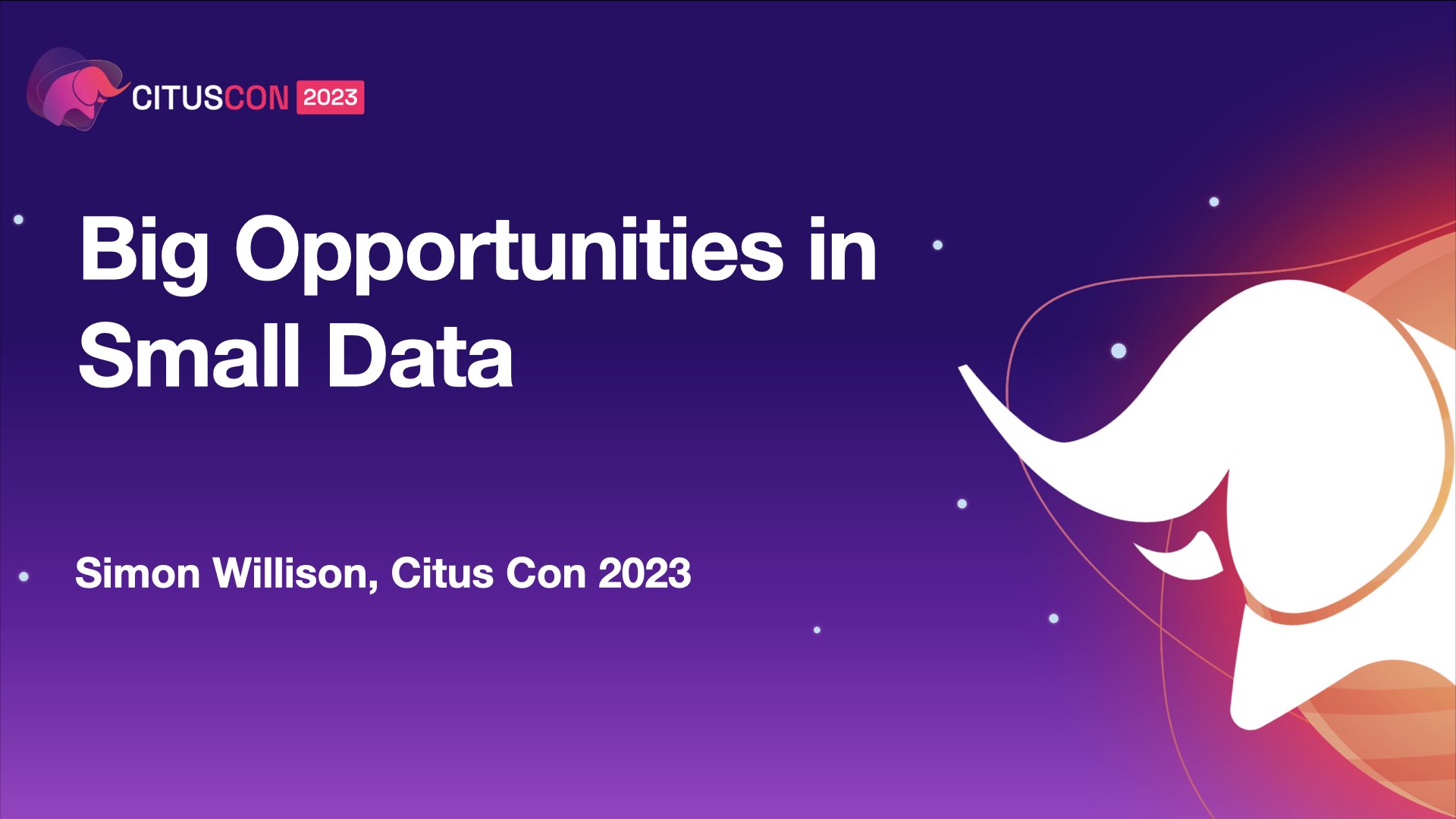Monday, 8th May 2023
Künstliche Intelligenz: Es rollt ein Tsunami auf uns zu (via) A column on AI in Der Spiegel, with a couple of quotes from my blog translated to German.
Big Opportunities in Small Data
I gave an invited keynote at Citus Con 2023, the PostgreSQL conference. Below is the abstract, video, slides and links from the presentation.
[... 385 words]Because we do not live in the Star Trek-inspired rational, humanist world that Altman seems to be hallucinating. We live under capitalism, and under that system, the effects of flooding the market with technologies that can plausibly perform the economic tasks of countless working people is not that those people are suddenly free to become philosophers and artists. It means that those people will find themselves staring into the abyss – with actual artists among the first to fall.
What Tesla is contending is deeply troubling to the Court. Their position is that because Mr. Musk is famous and might be more of a target for deep fakes, his public statements are immune. In other words, Mr. Musk, and others in his position, can simply say whatever they like in the public domain, then hide behind the potential for their recorded statements being a deep fake to avoid taking ownership of what they did actually say and do. The Court is unwilling to set such a precedent by condoning Tesla's approach here.
Seashells. This is a really useful tool for monitoring the status of a long-running CLI script on another device. You can run any command and pipe its output to “nc seashells.io 1337”—which will then return the URL to a temporary web page which you can view on another device (including a mobile phone) to see the constantly updating output of that command.
GitHub code search is generally available. I’ve been a beta user of GitHub’s new code search for a year and a half now and I wouldn’t want to be without it. It’s spectacularly useful: it provides fast, regular-expression-capable search across every public line of code hosted by GitHub—plus code in private repos you have access to.
I mainly use it to compensate for libraries with poor documentation—I can usually find an example of exactly what I want to do somewhere on GitHub.
It’s also great for researching how people are using libraries that I’ve released myself—to figure out how much pain deprecating a method would cause, for example.
Jsonformer: A Bulletproof Way to Generate Structured JSON from Language Models. This is such an interesting trick. A common challenge with LLMs is getting them to output a specific JSON shape of data reliably, without occasionally messing up and generating invalid JSON or outputting other text.
Jsonformer addresses this in a truly ingenious way: it implements code that interacts with the logic that decides which token to output next, influenced by a JSON schema. If that code knows that the next token after a double quote should be a comma it can force the issue for that specific token.
This means you can get reliable, robust JSON output even for much smaller, less capable language models.
It’s built against Hugging Face transformers, but there’s no reason the same idea couldn’t be applied in other contexts as well.
When trying to get your head around a new technology, it helps to focus on how it challenges existing categorizations, conventions, and rule sets. Internally, I’ve always called this exercise, “dealing with the platypus in the room.” Named after the category-defying animal; the duck-billed, venomous, semi-aquatic, egg-laying mammal. [...] AI is the biggest platypus I’ve ever seen. Nearly every notable quality of AI and LLMs challenges our conventions, categories, and rulesets.
